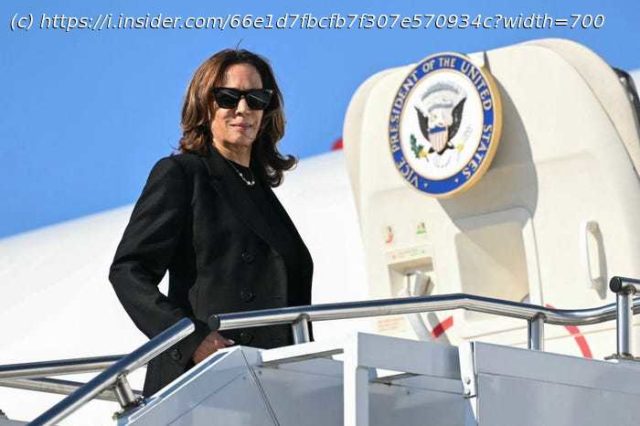Kamala Harris‘ rapid campaign calls into question the prolonged election timeline. Does extra time and money actually gets us better candidates?
When Vice President Kamala Harris announced that she was running for president on July 21, she changed more than the dynamics of the race — she upended the entire timeline of presidential elections. Her relative mad-dash effort poses the question of how American elections got so long in the first place and whether it’s time to end the era of the permanent campaign.
Harris launched her campaign just 107 days before Election Day. Former President Donald Trump launched his 720 days before November 5. By announcing his bid for the White House nearly two years before Election Day, Trump’s timing is consistent with those of modern presidential candidates, experts told Business Insider.The „shadow campaign“ means candidates are always running for office, even if we don’t see it.
„Given the system that we have now, people start running for president years before“, Rachael Cobb, an associate professor of political science at Suffolk University, told Business Insider.
Cobb and other experts named length as a defining characteristic of American elections. Before any vote is cast, Cobb said that there’s an approximately three-year period of an „invisible primary.“ And money is a crucial part of that hidden campaign.
„When it comes to what comes first, the candidacy or the money, they both are pretty much in tandem“, W. Joseph Campbell, a professor emeritus at American University who studies polling, told Business Insider. „A candidate who really has any national aspirations does have to raise money and does have to have donors lined up. Otherwise, that candidate’s prospects are pretty slim.“
Though there are specific rules that trigger disclosure for campaign funding, candidates are free to quietly establish key relationships, build out email lists, and make strategic public appearances years before announcing a bid for the White House.
Tim Hogan, who was a spokesperson for Hillary Clinton in 2016 and the communications director for Amy Klobuchar in 2020, described the effort as a „shadow“ campaign.
„Rarely does anybody walk into these campaigns with no infrastructure. I think that’s part of what contributes to the permanent campaign“, he said. „Even when an ambitious politician is not explicitly running for something, they’re probably thinking about it in some way and they’re building an infrastructure that’s likely flexible.“
Michael Sistak, who served as Sen. Mitt Romney’s political director in Michigan in 2012, described a presidential campaign as a „long slog through the mud.
Start
United States
USA — mix We're in the era of the permanent campaign. Could Kamala Harris change...






